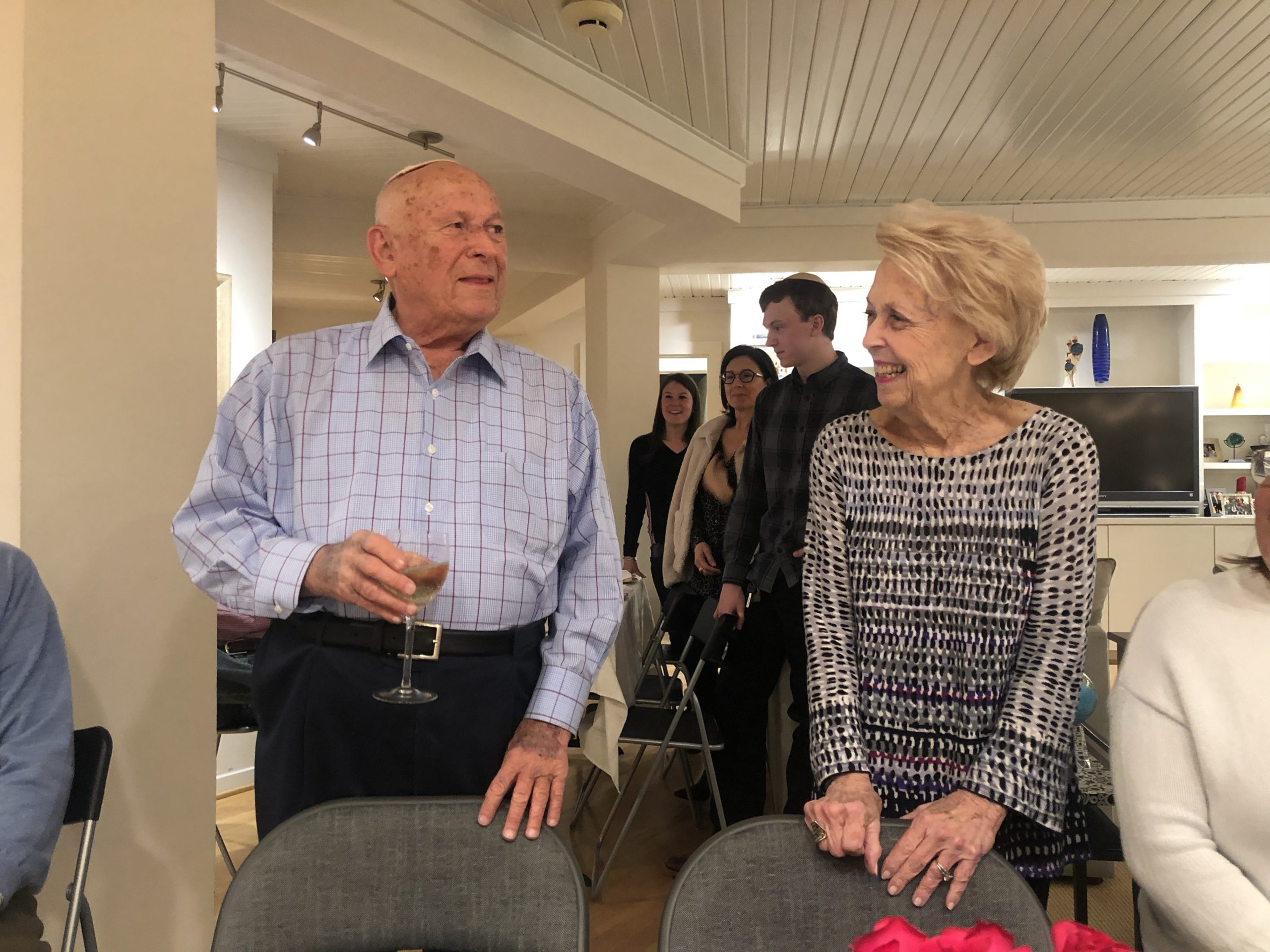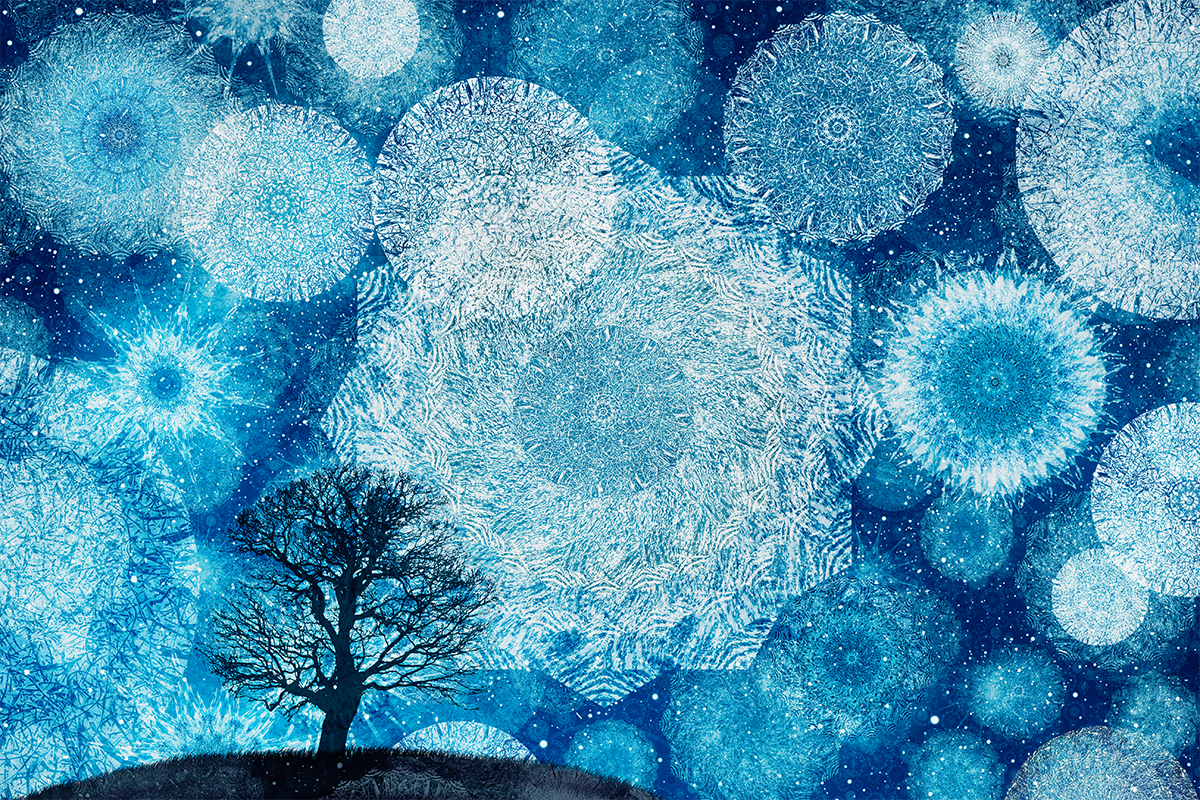A few weeks ago, I called my grandparents, Janet and Sonny, on a Thursday night.
“What are y’all doing?” I asked them.
“We’re getting ready to go out,” my grandmother told me.
I checked my watch; it was 9 p.m. “Um, what?”
“The International Space Station is visible from Earth tonight,” she replied. “You can only see it with the naked eye once every 60 years, and this is my chance. I won’t be around to see it next time. I have binoculars with me.” I heard my grandfather busying about their apartment on the other end of the phone, looking for his car keys.
I shook my head and chuckled as I hung up the phone. To an outsider, the notion of my grandparents leaving the house at 9 p.m. on a weeknight to try to locate the International Space Station may seem like a fool’s errand, but to me, it’s the perfect encapsulation of their penchant for wonder. After all, throughout my life, they have brought this sense of awe to everything. I could just picture them sitting in their Toyota Avalon, peering up through the windshield at the night sky awash with stars, searching in earnest.
At nearly 86 and 93, respectively, my grandparents are the matriarch and patriarch of my extended family, most of whom live in Dallas and gather regularly for Shabbat dinners every weekend, birthday celebrations over pizza, Rosh Hashanah lunches, and Passover seders. For every occasion, my grandmother executes elaborate menus that account for everyone’s favorite dishes and dietary restrictions, while my grandfather holds court with the 25 people crammed around tables arranged in a serpentine formation inside their small apartment.

It is always a little chaotic, always a little exhausting, but when my grandfather stands at the head of the table to say Kiddush, or to welcome his guests, everyone stands still, quiet and reverent, like an orchestra poised to turn the pages on their music stands and reach for their instruments. My grandparents are conduits to past generations we’ll never meet, and they serve as a mile marker for hopes we hold dear for our future families that may never meet them. They carry this responsibility with a great deal of awareness. This time is fleeting — they know, we know.
This year, though, the way we gather around their table will be virtually unrecognizable as we adapt to an increasingly virtual world. Among the countless things that shifted in response to a global pandemic, synagogues across the country were forced to make an unprecedented, enormously difficult decision: to host in-person services for the High Holidays, or not? The decision not to, at least at my synagogue in Dallas, was made back in May, before we knew we would still be sitting at home months later, biding time. It was an announcement that was met with a solemn quietude among the congregation, as people tried to imagine what a year without services in the sanctuary would even look like.
When I heard the news that services would not be held in person, I vacillated between feelings of relief and true sadness. On one hand, I struggle to find resonance in services anymore. The sanctuary is grand and intimidating, and the organs and exultant singing of the chorus are beautiful, but usually leave me feeling a little cold. For me, spirituality and my deeply held beliefs in Judaism are personal and can be tapped outside the four walls of a synagogue anytime.
I enjoy the High Holidays, not because it’s my time to convene with God, but because it’s time I get to have with Janet and Sonny. I love to watch my grandfather, sitting in the aisle seat, spring from his chair whenever the rabbi instructs us to stand, the first to jump up. I love how he wraps his fingers around the threaded fringes of his tallis, adjusting and readjusting the kippah on his bald head, spotted with age. I love how he loudly mutters prayers in call and response, the way he pronounces Hebrew words with rounded consonants like older generations of Yiddish speakers must have. I love to link my arm in my grandmother’s arm as we walk to synagogue with the sounds of our heels clicking on pavement. I love how she talks about seeing God in the leaves on the trees and knowing that she really truly means it. I love how she leaves as soon as the rabbi finishes his sermon so she can go home to get Rosh Hashanah lunch ready, waving goodbye with a wink because she has an excuse to scoot out early.
What happens to all of that when we can’t gather for High Holidays this year? How do we capture the intangibles, the small habits and the big traditions, the harmonies we hum, the shift in our seats as we brace to stand? What can we do to make the High Holidays more resonant, more relevant, more tactile, in an overly digital world?
I learned recently that the time period between Rosh Hashanah and Yom Kippur is referred to as “The Days of Awe.” According to a rabbi friend I consulted (okay, and Wikipedia), the name originates from the Medieval era. It’s traditionally a time for reflection, a moment to shift away from the celebratory tone of Rosh Hashanah and to prepare for the solemnity of Yom Kippur.
The pandemic has taken away our ability to observe the High Holidays in the traditional sense, but in spite of all of that, I’ve decided to follow my grandparents’ lead. This year, I propose that we all approach the Days of Awe with a little bit more wonder. When was the last time you looked up, craned your neck to the sky, and mapped out stars? When was the last time something surprised you in the good way? When did someone or something last stop you in your tracks?
During these Days of Awe to come, I hope you’ll do as Janet and Sonny do, too. Carve out time for wonder. Take a moment for stillness. Pause to appreciate laughter, to recognize a moment of joy, to be grateful for your health and for the health of those around you. Breathe deep, look up. Crane your head to the sky. See what there is to see.
Maybe, in spending these days committed to awe, instead of mourning what can’t be, we’ll discover new ways to connect that feel authentic and true. However you choose to spend it, I hope you’ll do so with reverence; this time — we know — is fleeting.
Header image: Andrew Bret Wallis/Getty Images.



